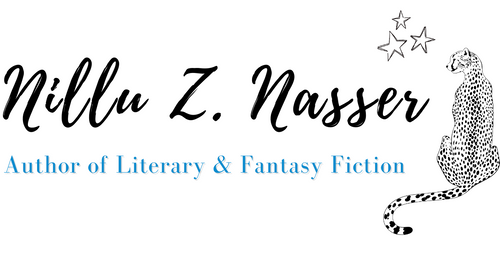
The Booker, Arthur C. Clarke Award, Nobel Prize for Literature, Franz Kafka Prize, Baileys Women’s Prize for Fiction, Iowa Short Fiction Award, Writer’s Digest Self-Published Book Award, Goethe Prize, Wole Soyinka Prize, Deutscher Jugendliteraturpreis, Nebula Award, Guardian First Book Award, Costa Book Awards… How much attention do those outside literary circles pay to book awards? When you are browsing the shelves of your favourite book shop or want to buy a e-book, does the sticker marking out a novel as a prize winner make you more likely to part with your money? Or do you rely on word of mouth, random browsing or print/ online reviews to help you make your reading choices?
When shortlists for awards are announced, I write up novels in a memo which have a premise that interest me, particularly if they are by female writers, but I wonder how many other readers do the same. It’s only been about six months since I’ve had a e-reader (I’m a reformed paper snob) and already instead of looking at my list of award nominees to decide my next read, I tend to download e-books by authors I have interacted with on Twitter (latest great reads @akmakansi’s The Sowing, @CollettMeg’s End of Days series and @RachelintheOC’s Broken Pieces. Next up @petersamet’s Zero Echo Shadow Prime).
What are then the advantages of major book awards in a world where everyday readers have the technology to post their own reviews and access hundreds of others in a matter of minutes? Literary awards still open us up to authors we may never have discovered and books we might never have read, much like a book club. They are also a form of patronage, giving authors additional exposure and a boost to their future earnings in a profession where it can be difficult to earn a living wage. When nominees and winners of major literary awards are announced, fiction gets more attention in the media, it comes up more in everyday conversation, resulting in more people buying, borrowing and reading books. That can only be a good thing.
So how about the negatives then? How we receive art is a matter of taste, and for most awards, we rely on judging panels to tell us which books are worthy of acclaim. The judges on the panels work within set criteria and are supremely qualified to pick star novels from amongst a year’s publications, for example, and their tastes have been refined through exposure and experience. Even so, choosing an ultimate winner from a diverse range of books is to a large extent like comparing apples with oranges, an arbitrary decision. Some awards can also give the impression that they are for a certain kind of ‘well-read’ reader, which is unfortunate when fiction can bring such joy but is passed over in favour of other forms of entertainment such as television, cinema and computer games, because can appear inaccessible. I wonder if the opposite is true in literary circles, and whether there is a pressure to keep up with reading nominated books. How tedious. I did a dual literature degree at university and while I enjoyed much of it, extensive reading lists near drained me of my love of reading. I’m a firm believer in reading what you want when you fancy it, whether it’s a comic, a quick and dirty Mills & Boon or a Steinbeck.
In the end, for me, individual reader reviews and word of mouth recommendations are the most reliable form of judging the quality of a book. Even then, there is no guarantee that a particular work will resonate with you. How we respond to the art we experience is entirely personal. Sometimes an author’s vision touches a particular chord within us due to his/her choice of themes, episodes, character traits, form of expression, and there is no magic quite like it. When you find books like that, they remain dear to you. I bet there are a few award winners which have had that impact on you, but there also some on a publisher’s slush pile somewhere, waiting to be discovered.
Let’s move away from literary awards for a moment and talk about the small fish comparison: writing competitions. Just as a major literary award can substantially increase the profile and future earnings of an author, winning a respected competition can win you the attention of agents and publishers and put you on the road to traditional publication. Do you submit to writing competitions? I’ve not been inclined to submit my fiction to either competitions or magazines until a friend recently encouraged me to. I reworked my piece to ensure it met the competition criteria and reluctantly parted with my entry money, feeling a tiny glimmer of hope that my work might be good enough to make the short list (it wasn’t).
I’ve had a bit more time now to think about whether I would submit my work again to competitions and while I am not sure I would regularly want to pay an entry fee, learning to meet criteria such as deadlines, themes and specific word counts is good training for our craft. Just like blogging, competitions are a way of interacting with the external world. Your stories live when they are read, not when they languish in your drawer. By submitting your work, you are stepping into the void. It doesn’t matter if someone is there to catch you or if you fall. What matters is that with every story you grow. If your entry is short-listed or you win, what a weapon you’ll have to chase away those writerly doubts the next time you’re in a self-flagellating mood. And you never know, it may be the first step on the way to you featuring on the Granta List or winning the Booker.
